Artificial Intelligence (AI) and Machine Learning (ML) have become increasingly popular in various applications due to their ability to process and analyze vast amounts of data. In healthcare, AI and ML can be applied to various medical fields, including drug discovery, medical imaging, and personalized medicine.
Contents:
The development of applications for health and medicine is worth paying attention to because it has the potential to improve the healthcare industry’s efficiency, accuracy, and profitability. According to a report by Accenture, AI can potentially save up to $150 billion annually for the US healthcare economy by 2026.
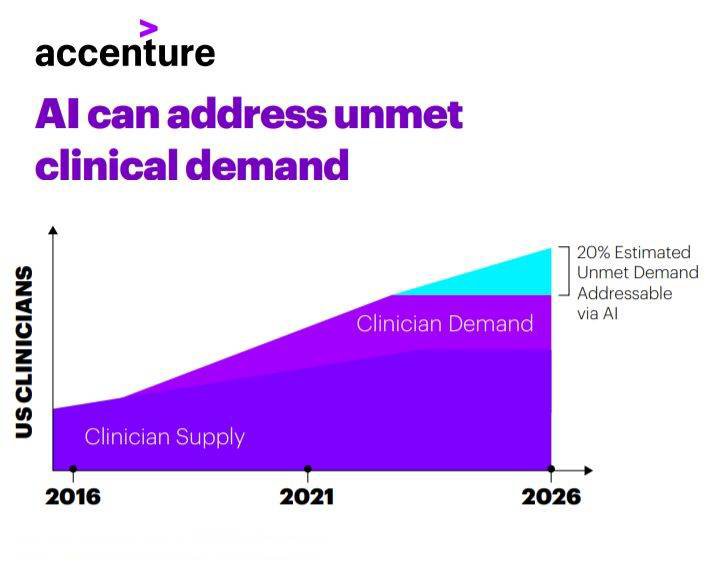
Benefits of AI and ML in Healthcare Apps
There are several benefits of using AI and ML in healthcare applications:
More accurate diagnoses: They can help physicians make more accurate diagnoses by processing large amounts of data, including medical history, symptoms, and test results. This technology can also identify patterns in patient data to help detect diseases early on and prevent them from becoming more severe.
Improved patient care: Patient care improvement by providing personalized treatment plans based on individual patient data, including demographics, lifestyle, and medical history. These technologies can also help monitor patient progress and adjust treatment plans accordingly.
Lower cost of treatment: AI and ML can lower the cost of treatment by reducing medical errors and improving efficiency in processes. These technologies can also help identify patients who are at high risk of readmission, allowing healthcare professionals to provide preventive care and reduce costs.
Improved accessibility to care: Accessibility to care by providing remote care to individuals, including telemedicine and remote patient monitoring. These technologies can help individuals in remote areas or with limited access to healthcare receive quality care.
Automation of routine tasks: They can automate administrative tasks such as data entry, scheduling appointments, managing electronic health records, and processing insurance claims, reducing costs and errors associated with manual processes.
Challenges of Implementing AI and ML in Healthcare Apps
As healthcare applications continue to grow, so does the implementation of artificial intelligence and machine learning in medicine. However, as with any technology, some challenges and disadvantages need to be considered. Below, we will explain and analyze the disadvantages and difficulties of working with AI and ML in healthcare apps.
Data privacy and security
One of the main concerns is the issue of data privacy and security. With the amount of sensitive information involved in medical diagnosis and treatment, there is a risk of breaches and unauthorized access. This not only puts patients’ personal information at risk but also compromises the trust between patients and the professionals of the sphere. Additionally, regulations such as HIPAA (Health Insurance Portability and Accountability Act) add an extra layer of complexity to data security.
Regulatory and compliance issues
Another challenge when working with AI and ML in healthcare apps are regulatory and compliance issues. This is a highly regulated industry, and the implementation of new technology requires adherence to various rules and regulations. For example, the FDA (Food and Drug Administration) has specific guidelines for the use of AI and ML in medical devices. Developers must ensure that their apps comply with all relevant regulations and guidelines.
Lack of skilled professionals
Finally, a significant challenge faced by healthcare app developers is the lack of skilled professionals in AI and ML. This field doesn’t typically attract those with a background in technology, and the demand for skilled professionals is growing at a faster rate than the supply. As a result, there is a shortage of individuals with the necessary expertise to develop and maintain AI and ML solutions in healthcare.
Despite these challenges, the benefits of AI and ML in medical software development cannot be ignored. From medical diagnosis to predictive analytics, AI and ML offer numerous benefits for healthcare app developers.
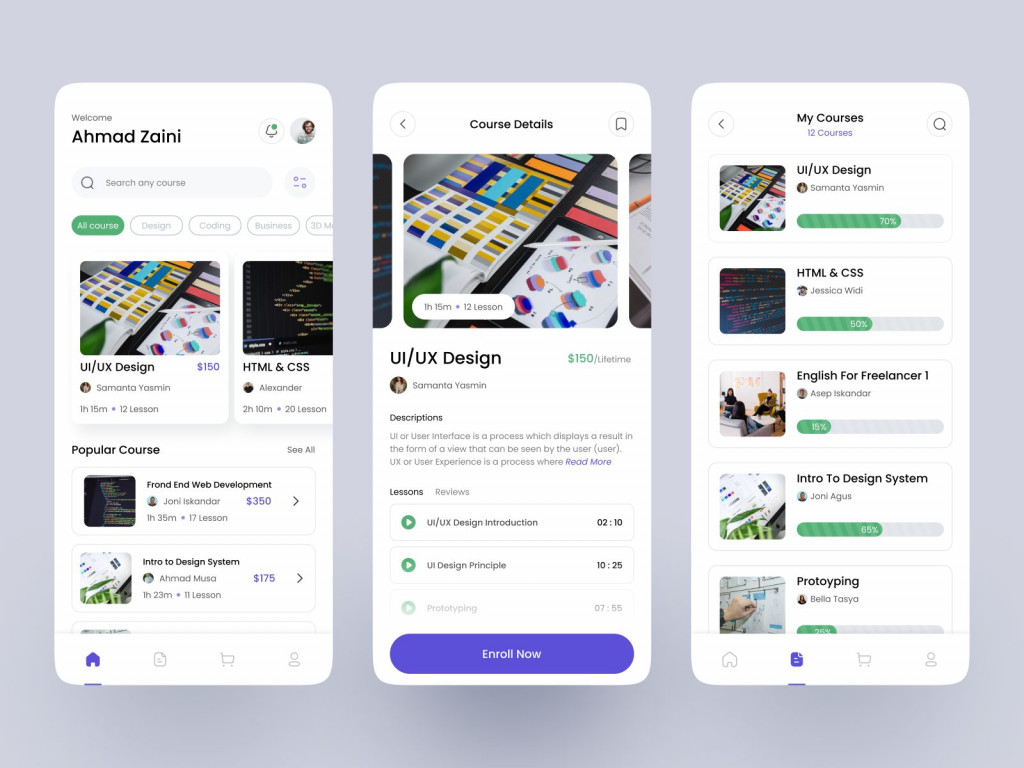
Medical consultation apps by Jawadur Rahman Akib
Steps to Implement AI and ML in Healthcare Apps
This system has revolutionized the way care is delivered, and the incorporation of AI and ML has taken it to the next level. Here are the steps to integrate AI and ML in healthcare apps:
Identify and define the goals of the app
Before developing a healthcare app, it’s essential to identify and define the app’s goals, which could include streamlining medical diagnosis, providing predictive analytics, improving patient care, or even automating routine tasks. Once the goals are established, choosing the appropriate AI and ML tools becomes easier.
Choose the appropriate AI and ML tools
After defining the app’s goals, the next step is to choose the appropriate AI and ML tools. There are numerous AI and ML tools available in the market, such as TensorFlow, Keras, and PyTorch. When choosing the tools, it’s important to consider factors such as the app’s goals, data size, and computing power.
Design and develop the app
After choosing the appropriate AI and ML tools, it’s time to design and develop the application. The design should be user-friendly and interactive, and the app should be tested and optimized for performance. In healthcare app development, it’s essential to ensure that the app complies with the regulations and standards set by the federal medical boards.
Test and deploy the app
After designing and developing the software, it’s important to test it thoroughly to ensure that it’s functioning as intended. The app should be tested on various devices and platforms to ensure compatibility. Once the testing is complete, the app can be deployed in the market.
Examples of Healthcare Apps That Use AI and ML
Ada, Healthily, Buoy Health, and Babylon Health are some of the most popular healthcare apps that use AI and ML to provide personalized caregiving services in the medical industry. These applications are a great example of how AI and ML are transforming the medical care system. They offer personalized services to users, which are more efficient and convenient than traditional ones.
Ada: Artificial Intelligence for Personalized Health Assessment
Ada is an AI-powered health app that offers personalized medical guidance. It uses machine learning algorithms to analyze the user’s symptoms and provide personalized health assessments. Ada has more than 10 million users and is available in multiple languages. It is efficient and great because it helps users to understand their symptoms and provides personalized health recommendations.
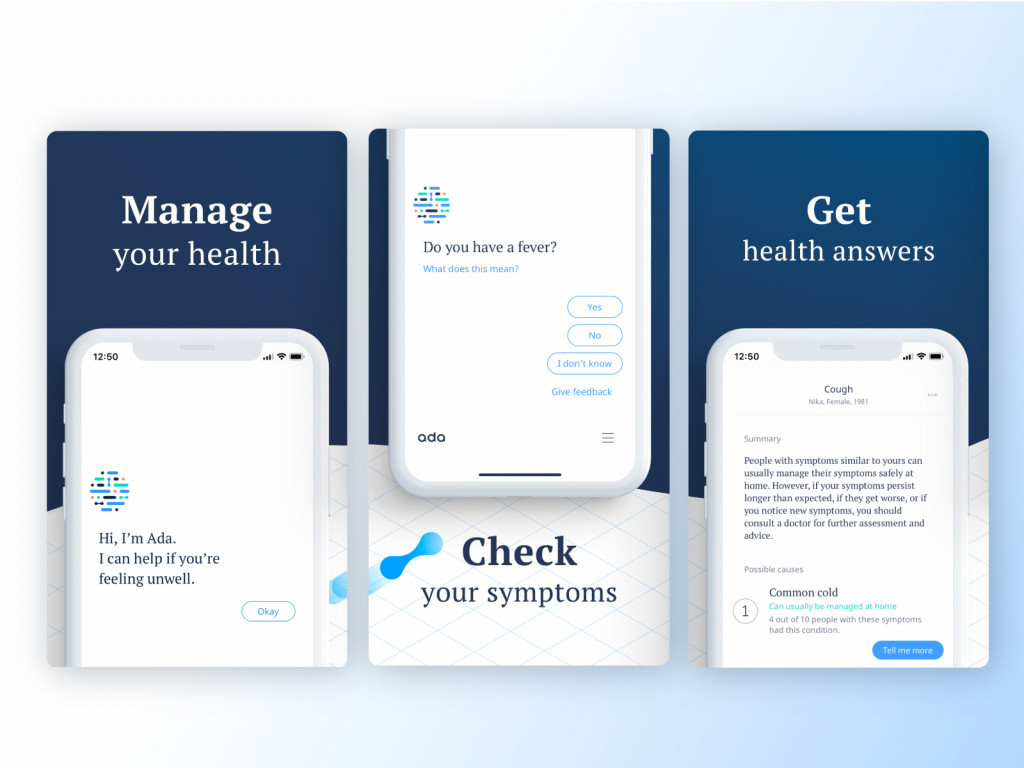
Screenshots for the ADA app by Inês martins
Healthily: AI-Powered App for Preventive Healthcare
Healthily is an AI-powered app that provides preventive healthcare solutions to its users. It offers personalized health advice, symptom checkers, and health information. Healthily uses predictive analytics and machine learning algorithms to provide personalized recommendations to its users. It is efficient and great because it helps users to take control of their health and prevent chronic diseases.
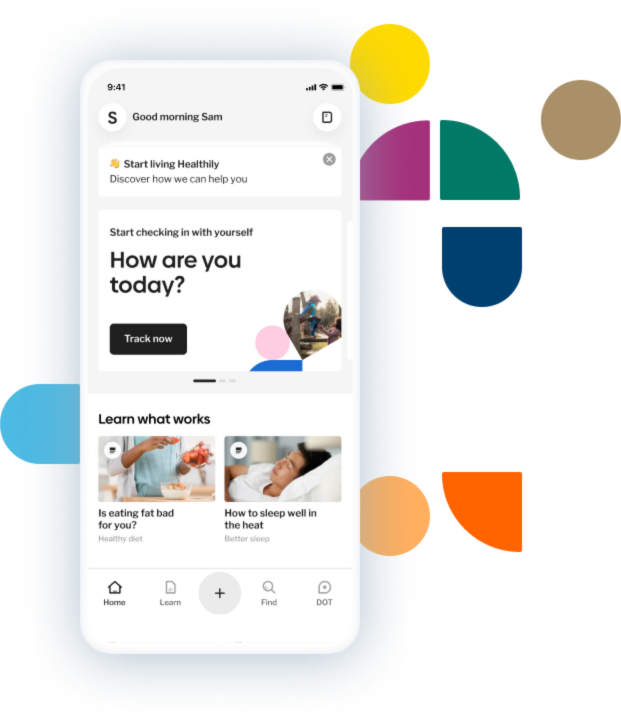
Healthily app screenshot
Buoy Health: AI-Based Multi-Symptom Checker
Buoy Health is an AI-powered multi-symptom checker that provides personalized health recommendations to its users. It uses machine learning algorithms to analyze the user’s symptoms and provide personalized health assessments. Buoy Health is efficient and great because it helps users to understand their symptoms and provides personalized health recommendations. It also provides users with an option to connect with a doctor or a nurse if required.
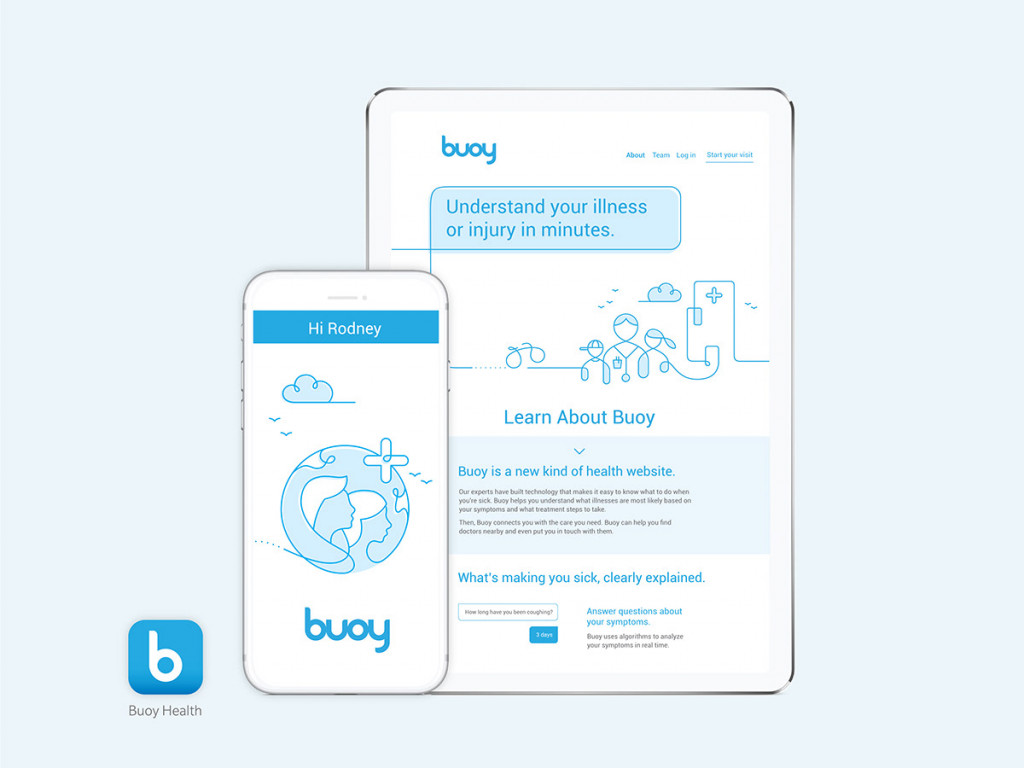
Buoy Health by Sam Ayling
Babylon Health: AI-Based Medical Diagnosis and Consultation
Babylon Health is an AI-powered app that offers medical diagnosis and consultation to its users. It uses machine learning algorithms to analyze the user’s symptoms and provide personalized health assessments. Babylon Health also offers video consultation with a doctor, prescriptions, and health monitoring tools. It is efficient and great because it offers users convenient access to medical services and helps them to manage their health effectively.
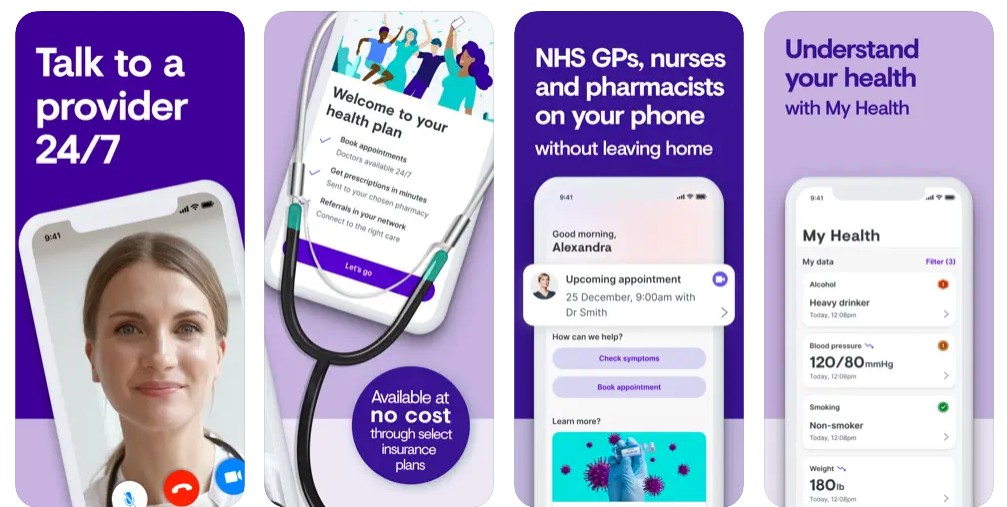
Babylon Health app
AI and ML are doing grown-breaking work by personalized and efficient healthcare services. Applications like Ada, Healthily, Buoy Health, and Babylon Health are some examples of successful medical products that use AI and ML to take care of their patients. These apps are efficient because they help users to understand their symptoms, provide personalized health recommendations, and offer convenient access to medical services.
Conclusion
In today’s digital age, medicine has become one of the most promising sectors that can benefit from the advancements in Artificial Intelligence and Machine Learning technology. The use of AI and ML in healthcare applications offers several benefits such as accurate diagnoses, improved patient care, lower treatment costs, improved access to care, and automation of routine tasks. However, there are also challenges such as data privacy and security, regulatory and compliance issues, and a lack of skilled professionals. Despite these challenges, the benefits of AI and ML in the medical community cannot be ignored.
To implement AI and ML in healthcare apps, it’s important to identify and define the app’s goals, choose appropriate AI and ML tools, design and develop the app, and test and deploy it. Therefore, it is recommended that those app developers in the sphere consider incorporating AI and ML in their applications to improve the healthcare industry’s efficiency, accuracy, and profitability.
Do you need to develop a top-tier healthcare application or medical software? Do not hesitate to contact us. Our team will help answer all your questions and build an effective and on-demand product.
